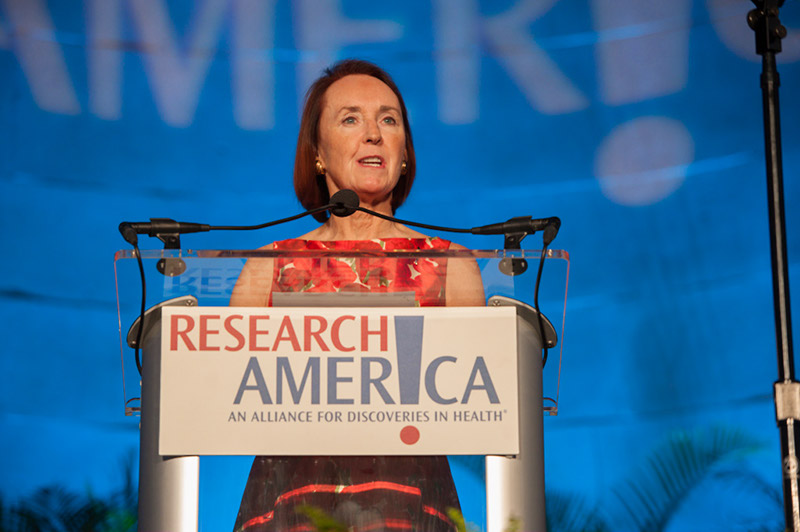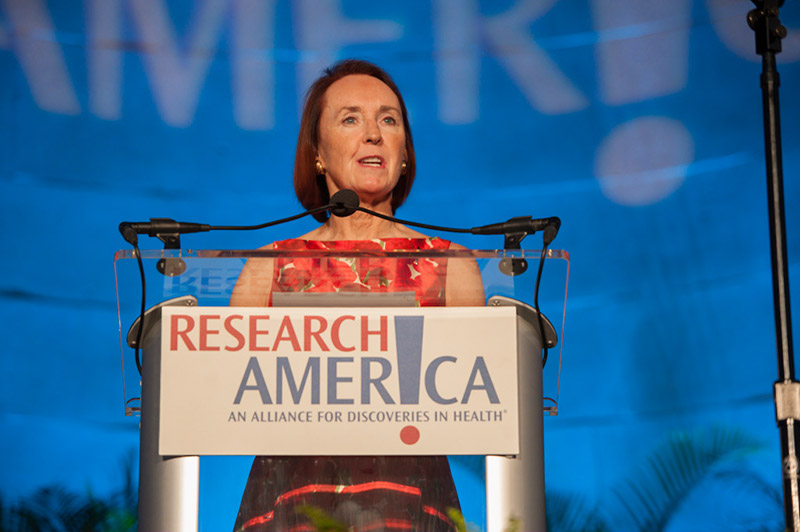Transformative Innovation Creates Jobs

 Dear Research Advocate,
Dear Research Advocate,
The title of a 1997 report, “Worlds Apart: How the Distance Between Science and Journalism Threatens America’s Future,” is as relevant today as it was then, and it’s still a good read. Television journalist Jim Hartz, who died last week, was the author. Jim was vexed by the interplay between the media’s lack of interest in science and the research community’s weakness in communicating with the public; and he decried the decline in federal science funding as a share of our economy — realities that challenge us to this day.
Research!America worked with Jim to strengthen the links between journalism schools and graduate science schools; this is still underappreciated as a path toward better understanding and mutual respect between professionals who have the same motivation to serve the public’s interest. And journalism schools and communications departments have skills to teach the science community; it’s past time to put that expertise to work.
We suspected then — and now know for sure — that large majorities of the public want to hear from scientists. In our January 2022 national survey, 8 in 10 respondents, regardless of political party affiliation, said scientists’ jobs should include communicating their research to the public. The 3M State of Science Index 2022, released last week, includes a similar finding, with 82% of Americans saying they want to hear from scientists.
U.S. Science and Innovation Leadership: Yesterday, the Joint Economic Committee of the U.S. Congress heard Research!America Board Member Sudip Parikh, PhD, CEO of the AAAS, testify about the urgency of U.S. investment in science and technology essential to remaining a global R&D leader.
“For the last 75 years,” Dr. Parikh said, “investments in research at the Department of Defense, National Institutes of Health, National Science Foundation, and over 20 other federal agencies have led to transformative innovation, which in turn directly created jobs and boosted the economy in game-changing ways. This recipe has been so successful that other nations have copied it — increasingly with even more vigor than us.”
Dr. Parikh joins me as a co-chair of the Science and Technology Action Committee; our Action Plan is focused on doubling federal investment relative to GDP over the next five years for R&D and STEM education, and on improving S&T coordination around urgent threats. Has your institution endorsed the Action Plan?
Research and Innovation in Virginia: Yesterday, an event hosted by Virginia Tech and the Fralin Biomedical Research Institute drew elected officials, community leaders and leaders of biotech and healthcare organizations from across the state and southwest Virginia to discuss how research creates good jobs and drives the regional economy. I presented findings from a new public opinion survey of Virginians that indicates strong public support for research and innovation, STEM education, and the infrastructures that support them. Many thanks to Virginia Tech, and especially Dr. Michael Friedlander, Vice President, Health Sciences and Technology.
(Did you know? Research!America regularly partners with our members to take the public pulse on important issues in their state to help inform advocacy and action. If you’re interested in learning more or in partnering on a survey, contact Anna Platt.)
On the Hill: I have talked about the need for additional pandemic preparedness funding. We can’t wish away the reality of future pandemics. I hope you’ll take a minute and use this editable email to make the case with your members of Congress.
Now is the time for all stakeholders in research for health to push for the budget allocation needed to ensure NIH, CDC, AHRQ, BARDA, and other key health agencies funded out of the Labor-HHS Appropriations bill receive robust increases in FY23. Let’s make sure the Labor-HHS Appropriations Subcommittee receives a large enough share from the bigger pot Congress has for annual spending. Sign your organization on to this letter to appropriations leadership right away. Email Sheila Murphy to discuss.
PCORI Board Nominations Open: The Patient Centered Outcomes Research Institute (PCORI), a quasi-governmental agency, conducts trailblazing work to cultivate new, patient-centric research models. The Government Accountability Office is accepting nominations for the PCORI Board of Governors. Nominations are due by May 10.
ICYMI: Today we had an alliance member meeting to discuss what’s on the horizon for Congress from now through Memorial Day — from competitiveness legislation to FY23 appropriations and more! Stay tuned for details about next week’s alliance member meeting on progress towards completion of the all-important FDA user fee legislation. If your organization is not a member, please reach out to Anna Platt for information.
In Memoriam: This week, we mourn Senator Orrin Hatch (R-UT), who was instrumental to advancing medical and health research throughout his more than four decades in the Senate. He co-authored the landmark “Hatch-Waxman” legislation which permitted generic drugs while establishing protections for innovators. We awarded Sen. Hatch the 2017 Edwin C. Whitehead Award for Medical Research Advocacy for his lifetime of ardent policy leadership.
Stay well, stay safe, and stay connected.
Mary Woolley




